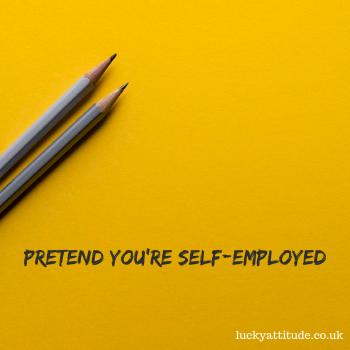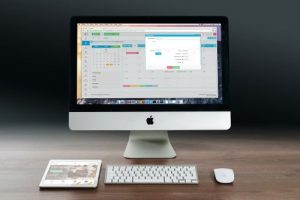The Self-Employed Mindset Makes You Smarter With Money

Want to manage and spend your money more wisely?
Could having a self-employed mindset or thinking about your finances as a business owner leave you better off?
Whether you’re employed, going it alone, or just worrying about barrelling through your pay package each month, the right approach can help you make the most of your income.
Here’s how to re-think your money plan:
• Every time you get paid, skim a bit off and stick it in a savings account before touching the rest.
This move ensures you’re not left scrambling for cash to pay your tax and National Insurance bills, so aim to match your tax rate (i.e., at least 20% if you’re a basic rate taxpayer). If you’re not self-employed, it’s still a brilliant way to build up a savings pot for emergencies or unexpected costs. Either way, keep the cash in a decent savings account to brew interest until you need it.
• Pay yourself first.
Pick a percentage of your monthly salary or pooled monthly income after tax – 5% to 10% is a good start – and stow it in another savings account. Treat it as back-up for any time you’re not earning (illness, unemployment, redundancy, or time off), and don’t withdraw it until you really, really need it. Make it a goal to have at least 6 months’ worth of income set aside and work up to it!
• Whatever cash you have left after steps 1 and 2 is what you have to live on for the month: it’s up to you to make it last.
Shop around for better deals on bills, ditch unnecessary money suckers, and recoup some of your spendings through cashback and loyalty/reward points.
Making the most of the deals and saving opportunities out there might help you to access the products and services you want without having to spend so much of your own money on them. With the right incentive rewards card, you can make pretty big long-term savings on the things that you know you’re buying anyway.
• Track your spending to identify waste.
Tracking your spending will help you to get a better idea of where your money is actually going and how you should be spending it. If you’re in a position where you’re not able to really understand where you’re going wrong, simply watching and seeing where you’re wasting money from one month to the next might give you a better idea. You can use an Excel spreadsheet, a simple pen & paper, or an app to do that.
• If thrift is your thing, consider a prepaid debit card like Monzo
These work like regular bank cards with one crucial difference: you have to load them up with cash before you can spend on them. Once you’ve paid your bills, rent/mortgage, and other essential costs, move the rest to your pre-paid card and use it for all your other spending – but no topping up until your next monthly pay date!
• Spend some time brushing up on your tax affairs.
If you’re self-employed, you’ll pay tax on your profits (income – after running costs – above the personal allowance), so don’t forget to check and log any allowable expenses: it means less tax to pay. Legit expenses include computer kit, stationery, advertising, some travel and home-use costs, and even your internet and phone use. If you’re employed, it’s also worth looking into tax allowances, which shield some of your income from the tax office: we’re talking savings allowances, being married, or earning money from renting out a spare room for starters.
As a basic, you’ll want to list each payment you receive, as well as any expenses you plan on claiming against tax. If you log fixed costs (bills, rent, insurance, or whatever), you can even use your spreadsheet to show how much you need to bring in each month – and whether you’re on track. Advance move: use formulas for a real-time view of how much you owe in tax and NI, and check you’ve got enough set aside. Not a data nerd? There are loads of accounting software / apps out there that can do the number crunching for you.
• Start investing
Investing might seem like something scary and complicated that you don’t know much about, but it doesn’t need to be that way. You can invest in stocks and shares, index funds, bonds, property, currency, and much more.
Long-term investing almost always beats saving because cash won’t keep pace with inflation. In fact, by keeping money in the bank, you actually lose money every year due to inflation.
Money as a currency is fluid, its value changes over time.
Investing is not about getting rich quickly.
Final takeaway
Having a self-employed mindset (even if you aren’t) sharpens your aptitude for accounting for every single penny – and that’s a good skill to have.






